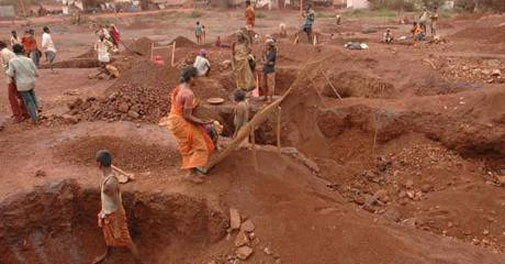
New Delhi, September 12: The Justice M B Shah Commission's indictment of the Union environment ministry for disregarding norms and Supreme Court orders to give clearances that facilitated rampant iron ore mining in Goa covers the period when Prime Minister Manmohan Singh held charge of the environment and forests portfolio.
The commission's censure of authorities for letting the mines function for more than half a decade in violation of norms for environment protection applies to the two-year spell — from May 17, 2007 to May 27, 2009 — when Singh was in charge of the ministry. He was assisted by two ministers of state — Congress's Namo Narain Meena and DMK's S Raghupathy. This was the period between the tenures of two Cabinet ministers — A Raja and Jairam Ramesh.
The commission has taken a stern view of the failure of the authorities to rein in the mining industry.
Goa's ban on mining is in reality a sham
The Shah Commission report may give the people of Goa only a temporary reprieve from the impacts of mining with the state government permitting trade of already extracted ore that has been termed illegal by the panel.
The Manohar Parrikar government has also advocated extraction and export from existing mining dumps — which by some estimates are pegged at 700 million tonnes and contain low grade ore. This could turn into a lucrative source of raw material for miners.
In its order, the state has said, "The suspension of mining operation shall not affect trade and transportation of ore already mined and existing in the lease hold area, in transit or stored or stocked in jetties."
With mining already at a low ebb or temporarily shut due to monsoon, the temporary suspension, officials in the Union government warn, would hardly impact production in the short run.
The BJP, which had defeated the previous Congress regime by running on a strong plank against illegal iron ore mining, has now pitched its weight behind mining of the existing dumps which can now be worked for low grade ore.
The state government has taken on the Centre which had claimed that these dumps worth several millions of dollars could be mined for iron only after environment, forest and other central clearances. Parrikar's draft mining policy too favours ore from mining dumps to be exported and he has armed himself with legal opinion to challenge the need for environmental clearances.
In an indication that the state government is soft-pedalling, it is yet to move to notify the eco-sensitive zones ( ESZ) around national parks and sanctuaries which would close a large number of mines. Goa has so far indicated that it is completely against the ESZs.
The actions of the Parikkar government go against the recommendations of the Shah Commission. The commission has noted that cases of theft should be registered as much of the ore was extracted illegally.
It has also recommended that the state government recover market or export rates for the material already mined.
Parrikar govt's order seems a little strange
The Parrikar government's order seems a little strange. If mining has been halted because it was illegal, what sense does it make to allow what has already been dug out to be sold? Clearly, it can't be anybody's case that the ore must be put back into the earth. But why must those who have illegally been plundering the state's mineral riches be allowed to continue to benefit from it. Would it not make much more sense for the state to confiscate the ores already mined and sell it so that the proceeds of the sale accrue to the state, not to those breaking the law?





Comments
Add new comment